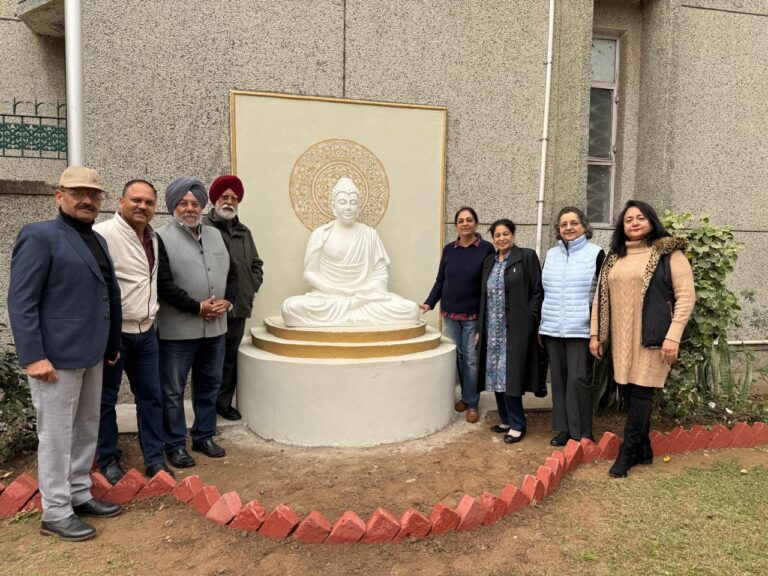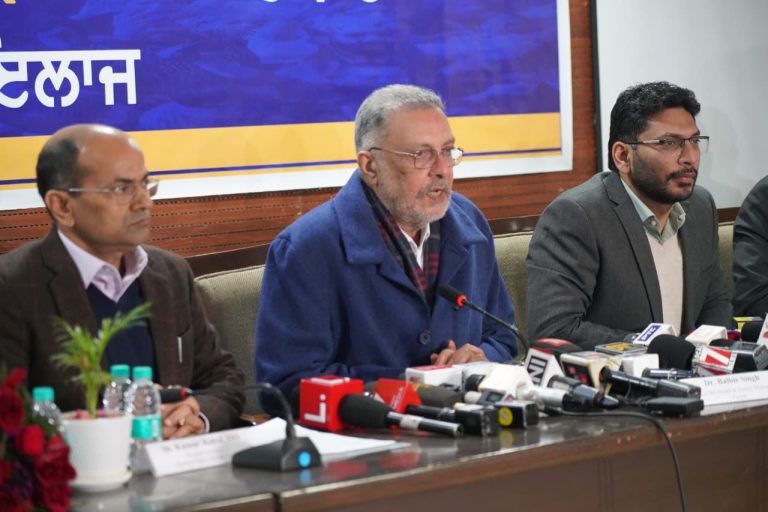
Chandigarh , 21st September 2025 ; A recent news report highlighted that smoking kills 1.35 million Indians annually and suggested that e-cigarettes or Oral Nicotine Pouches (ONPs) and other ‘smoke-free nicotine alternatives could provide harm reduction.
While the tobacco burden is indeed alarming, promoting e-cigarettes or ONPs as a public health solution is misleading and dangerous.
E-Cigarettes ; The claim of a 95% safer alternative
One of the most persistent claims is that e-cigarettes are ‘95% less harmful’ than smoking. However, this figure originated from a 2014 expert meeting without strong scientific backing, and even the authors admitted they lacked hard evidence. Devices on the market today are very different, making such claims outdated and unreliable. The World Health Organisation (WHO) has also clarified that Electronic Nicotine Delivery Systems (ENDS) are harmful products, not legitimate harm-reduction tools.
Easy availability of Nicotine products
E-cigarettes and ONPs are readily available in retail outlets and online platforms, often located near educational institutions. Aggressive marketing strategies promote these as safer alternatives, misleading consumers and undermining tobacco control efforts. The unregulated nature of E-Cig or ONPs allows unchecked variations in nicotine content, increasing the risk of dependence and adverse health effects—the lack of specific enforcement mechanisms results in continued illegal sales and distribution.
Dual usage
Far from being effective quit aids, evidence shows that e-cigarettes can increase the urge to smoke, cause relapse among former smokers, and promote dual use of cigarettes and use of ONPs. Replacing one form of nicotine addiction with another cannot be considered true cessation. Research shows that adolescents who start using e-cigarettes or ONPs are more likely to transition to cigarette smoking. Nicotine exposure in adolescence disrupts brain development, while pregnant women and unborn children face serious risks.
Added Flavours and aggressive marketing
The rapid growth of e-cigarette use among adolescents and non-smokers is even more concerning. With sweet flavours, toy-like designs, and aggressive marketing, these products deliberately target youth.
E-cigarettes are not harmless. Their aerosols contain nicotine, heavy metals, ultrafine particles, and toxic chemicals that increase the risk of cancer, cardiovascular disease, and lung damage. Even bystanders are affected through exposure to second-hand aerosols. Thus, substituting cigarettes with e-cigarettes does not reduce overall public health harm.
Prohibition of Electronic Cigarettes Act-2019
India has already taken a strong step by banning e-cigarettes under the Prohibition of Electronic Cigarettes Act (PECA) 2019, based on the recommendations of the Indian Council of Medical Research (ICMR). Weakening this stance would open the door to new addiction pathways and undo decades of progress in tobacco control.
Move to repeal bans
India’s youth — over 600 million people under 25 — represents the world’s largest population vulnerable to nicotine addiction. The ENDS industry frequently points to countries where e-cigarettes are legally available, using them as false models to pressurize India and nations like Brazil into reversing their bans. In many of those countries, lawmakers are revisiting and tightening legislation. This includes those in the United States, United Kingdom, Australia, France, and New Zealand. This is because of the dramatic surge in vaping among youth, adolescents, and even schoolchildren. This is due to the dramatic surge in vaping among youth, adolescents, and even schoolchildren.
India must remain vigilant against the misleading promotion of e-cigarettes or ONPs as harm reduction.True harm reduction means quitting all nicotine products, not replacing one with another. Our focus should remain on proven cessation strategies—counselling, quitlines, nicotine replacement therapies, and awareness campaigns. E-cigarettes are not the solution to India’s tobacco epidemic; they are part of the problem.
Dr Rakesh Gupta, President & Director of Public Health, Strategic Institute for Public Health Education & Research (SIPHER)








